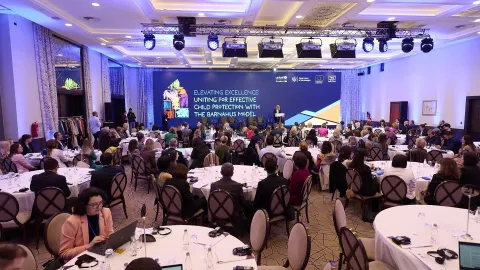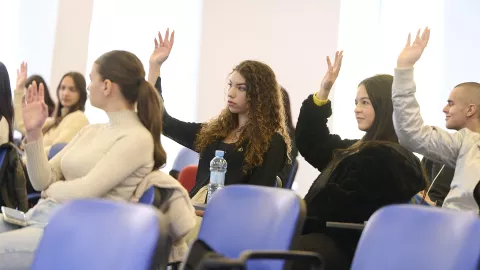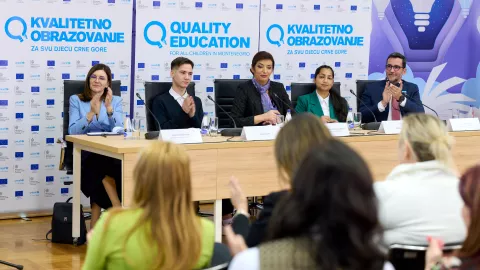Respect – for every child
On the occasion of International Day for Tolerance, UNICEF’s young reporters are calling on their peers and all the citizens of Montenegro to respect each other and nurture a culture of dialogue
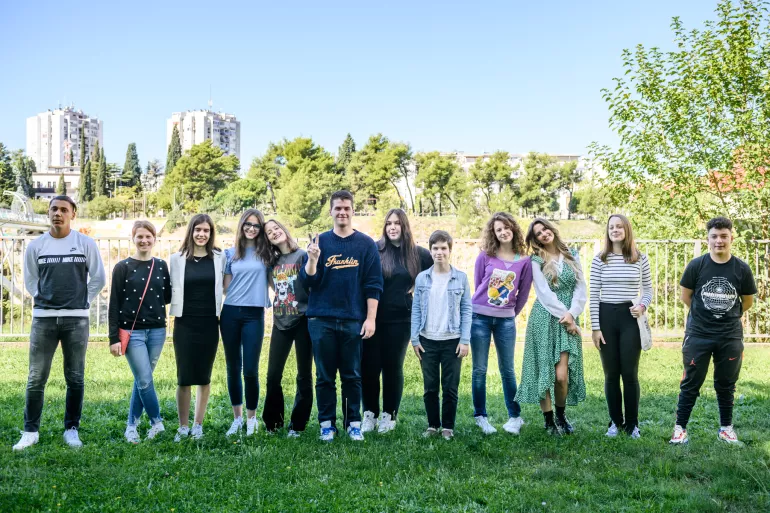
- Available in:
- Crnogorski
- English
- Shqip
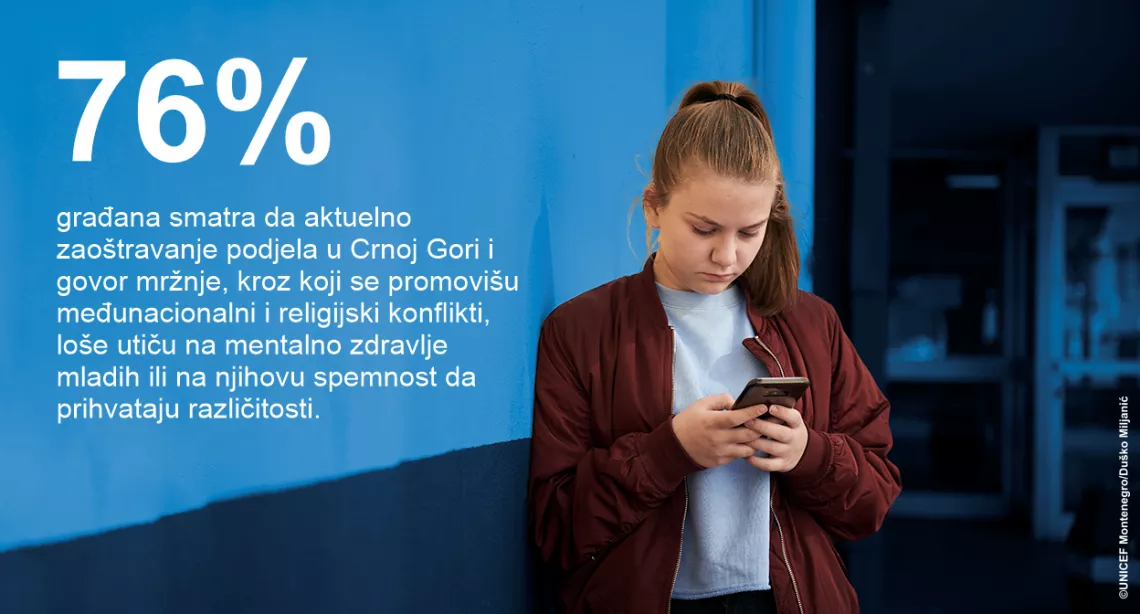
PODGORICA, 16 November 2022 – On the occasion of International Day for Tolerance, which is celebrated globally on 16 November, UNICEF’s young reporters sent a message to all the citizens of Montenegro through a TikTok video: “We do not have to agree, but let us respect each other.”
“It is necessary to explain why ‘different’ does not mean ‘worse’”, Luka Vujovic, a UNICEF young reporter, said on this occasion and called on his peers to work together even with those they are different from in any respect.
UNICEF’s young reporters created a TikTok video to recall situations from their own lives, such as when they support different sports clubs or have opinions which differ from the opinions of their friends and family members, and are calling on their peers and all citizens to respect each other and build a violence-free environment.
UNICEF young reporter Nada Stanisic believes that a culture of dialogue, mutual respect and acceptance of diversity is learned at a young age in the family, kindergarten, school and local community, but also through the media. She called on schools to organize regular workshops to encourage the acceptance of diversity. The UNICEF programme named “My Values and Virtues” is an excellent example of that, Stanisic pointed out.
“Each family should provide daily examples of behaviour through which mutual respect is shown, regardless of differences in opinions and ages among its members, while the media, all leaders and celebrities should promote a value system based on respect for diversity, instead of spreading insults and hate speech,” Stanisic said.
UNICEF Representative to Montenegro Juan Santander used the occasion to remind that violence against children and gender-based violence were recognized in recent European Commission reports on Montenegro’s progress as issues of serious concern.
“Building a culture of non-violence is a priority for Montenegrin society. To achieve this goal, relevant institutions, such as schools, centres for social work, the police, the judiciary and primary healthcare centres, must join forces in every local community. It is also vital that Montenegro prepares a new Strategy for the Prevention and Protection of Children from Violence, which will include online violence and hate speech,” Santander remarked.
According to the 2016 Global Kids Online survey, conducted with the support of UNICEF, almost one third (28%) of young people in Montenegro aged 12 to 17 years confirmed they were victims of peer violence. The very same survey revealed that one third of young people aged 12 to 17 years (32%) stated that they often lose their temper and get angry easily. The data indicates the need to strengthen children’s social and emotional skills so that they learn how to manage different emotions, improve communication and adopt adequate behaviours for peaceful conflict resolution.
For all these reasons, since 2015 UNICEF has been supporting the implementation of the “My Values and Virtues” programme, which aims to foster the development of social and emotional skills within the mainstream education system. The programme focuses on tolerance, creativity, empathy and teamwork.
In December of last year, 76 per cent of Montenegro’s citizens who participated in an Ipsos survey said that they believed that the current deepening of divisions in Montenegro and the hate speech through which inter-ethnic and religious conflicts are promoted had negative effects on the mental health of young people and their readiness to accept diversity.
Experiencing violence and hate speech can undermine young people’s self-confidence, as well as endanger their mental and physical health and even their lives. Such experiences can make it difficult for them to focus and be successful in school and can reduce their trust in peers – leading to isolation or a significant reduction in socializing with peers, which is important for any child’s proper growth and development.
Children who are victims of hate speech and peer violence can contact their school, a centre for social work, the police and the Protector of Human Rights and Freedoms, as well as the 116-111 national hotline for children and young people, which serves not only as a service to which one can report violence but also as a source of psychological support and advice regarding any issue that troubles children and young people.
International Day for Tolerance has been celebrated all over the world since 1995 with the aim of promoting respect for different opinions, a culture of dialogue and non-violence.
Media contacts
About UNICEF
UNICEF promotes the rights and wellbeing of every child, in everything we do. Together with our partners, we work in 190 countries and territories to translate that commitment into practical action, focusing special effort on reaching the most vulnerable and excluded children, to the benefit of all children, everywhere.
For more information about UNICEF and its work for children, visit www.unicef.org.

